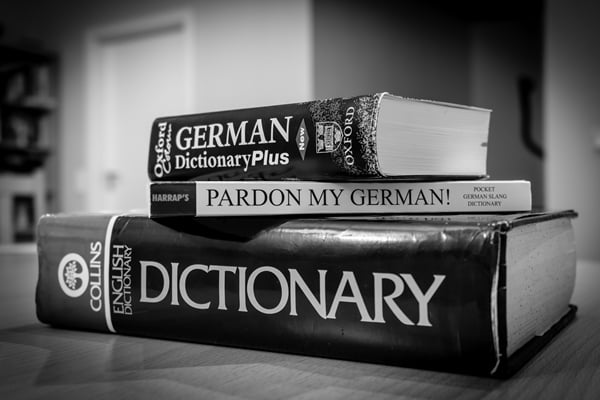5 Common Mistakes Foreigners Learning German Make
Perhaps you’re studying German to learn the language before working abroad, traveling overseas, or maybe you’re just studying for the fun of it! Either way, you must have learned by now that making mistakes while studying a new language is inevitable –German is no exception. While the embarrassment of making a mistake may cause some students to refrain from speaking the language, you should know that each slip-up provides plenty of learning opportunities to improve your language skills. However, it never hurts to take preemptive action: learn these common mistakes students make while studying German to learn what they are and how to avoid them.
1. Einbrechen and Erbrechen
To the English-speakng ear, the difference between these two words seems minimal, causing second-language German speakers to often confuse the two. Einbrechen means ‘break in’ while Erbrechen means ‘vomit’ —it’s easy to see why you wouldn’t want to confuse the two. After all, you don’t want to call in sick to work and say you’re ‘breaking in’ somewhere; you might scare your colleagues!
 Image via PhotoPin
Image via PhotoPin
2. Viertel Vier and Dreiviertel Vier
It’s no secret that Germans are sticklers for punctuality and being on time is a big must if you want to assimilate into the culture in Germany – which is why you should nip this common mistake in the bud right from the start. These two phrases can be quite confusing with viertel vier meaning ‘quarter four’ but meant to indicate a quarter past three (3:15), and dreiviertel vier meaning ‘three-quarters four’ but meant to indicate a quarter to four (3:45). Who knew telling time could be so complicated?
3. Mein Freund and Ein Freund
Introduce your acquaintance as mein freund (‘my friend’) and you’re implying you two are more than just friends (there’s a bit of chemistry there, perhaps?). If you don’t want to imply your relationships is more than platonic, introduce your friend as ein freund which simply means ‘a friend.’
 Image via PhotoPin
Image via PhotoPin
4. Der and Die and Das
Der, Die, and Das: German’s three genders.Gender is a big deal in German as opposed to English where you don’t worry about assigning gender to anything other than animals and humans. In German everything has a gender, whether you’re talking about a chair, a book, or a TV show and remembering to assign the right gender to each item is vitally important if you want to sound like you know what you’re doing. There are rules for predicting the gender of most German nouns, so be sure to lend extra time to these before you start trying to chat up native speakers!
5. Sie and Du
Many languages feature various modes of speaking depending on the person you’re speaking to or the formality of the situation. German is in fact one of these and learners tend to struggle a lot with conquering this particular aspect of the language. Although sie and du both technically mean ‘you,’ they cannot be used interchangeably. Sie is the formal and the Du is the familiar, so don’t get them mixed up. Considering formality is a big deal to Germans, you’d be wise to master these right away!
 Image via PhotoPin
Image via PhotoPin
Now that you’ve got a few common mistakes under control, be sure to cast an eye on the rest of your language studies. Signing up for some excellent language classes will ensure you progress further in your language studies. Want to keep your skills sharp? Take a free online placement tests! With a firm foundation in place and an extensive knowledge of which mistakes to avoid, you’ll be saying Hallo! to many years of German language success!
